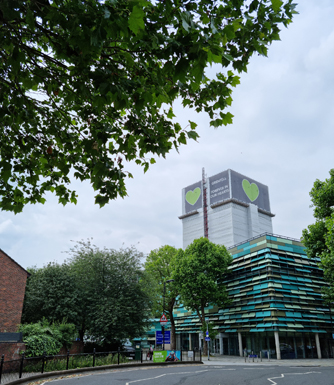Regulatory change and new technology in the built-environment sector are not enough to avoid future fire disasters. The root cause of the failures that led to the Grenfell fire was systemic; and only leadership in the built-environment industry and cultural change on fire safety issues can avoid another disaster. That came out of a panel hosted by the business membership body Resilience First, and the Fire Protection Association (FPA). The event was to consider resilience best practice in the built-environment sector after the 2017 Grenfell Tower fire. The panel included Dame Judith Hackitt, who led the 2018 Independent Review of Building Regulations and Fire Safety after the tragedy.
The elements of culture change that are needed to build resilience in the built-environment sector include increased competence, better record keeping and information sharing, more robust quality assurance and a focus on listening to and working with buildings users and residents.
Su Butcher, Director of Communications Consultancy, Just Practising Ltd, chaired the panel on behalf of the Built Environment Panel of the Institution of Engineering and Technology. She said: “We all have to look ahead and see possible tragedy before it happens, be prepared, and act appropriately if we are to implement resilience. Resilience is about how robust systems and people can adapt to new circumstances, how they can prepare for and deal with incidents.”
“This is a systemic problem. It isn’t about a particular product or system and therefore the solution will not only involve competency but it will involve culture change as well as regulation and technology.”
Dame Judith Hackitt, Chair of Make UK, is a former Chair of the UK regulator the HSE, and the author of the Hackitt Review of Building Regulations and Fire Safety. She said: “It became very clear to me, very quickly, that the root cause of the failure was a systemic one. The resilience issue is much, much bigger than a single component. We have a system at present, until it is changed, which does not ensure the delivery of buildings that are fit for purpose.”
“The elements of culture change that are needed to build resilience in this sector are many. Increased competence, better record keeping and information sharing. We need quality assurance, both of workmanship and of materials. We also need to recognise the importance of listening to and working with the users of the buildings, the residents in particular.”
“But the most important element that will make a difference and build resilience in this sector is leadership from within the industry itself and a commitment to doing the right thing.”
Howard Passey, Director of Operations at the FPA, said: “We need to make sure that those involved in the design phase of building, and their clients, understand that they don’t just have to meet the minimum requirements. They can decide what their own risk appetite is and they can positively impact the resilience of their own building stock.”
“Critical thinking is absolutely key to ensuring that the what ifs are considered. In terms of value engineering, our focus should not be on how we save money doing this but how we consider the potential risks that exist.”
Terence Short, Principal Fire Safety Advisor, the Corporation of London, completed the presentations by explaining that since the City of London Corporation’s conception, historic events had shaped the City’s positive attitude towards resilience and forward planning which had enabled its effective response to the many challenges initially raised by the tragic fire at Grenfell.
About Resilience First
It’s a not-for-profit business organisation, launched in June 2018. Visit https://resiliencefirst.org/.









